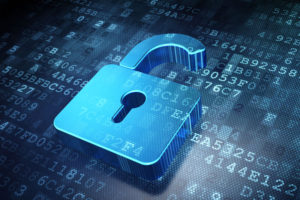 Living in the age of information is not an easy task; your critical and sensitive data is vulnerable to attacks and it might even get corrupted or worse, stolen. Many small businesses and middle market organizations have fallen prey to external attacks and as a result have lost important data. Loss of vital data can harm the business and even destroy a firm’s reputation, if preventive measures are not taken to protect it.
Living in the age of information is not an easy task; your critical and sensitive data is vulnerable to attacks and it might even get corrupted or worse, stolen. Many small businesses and middle market organizations have fallen prey to external attacks and as a result have lost important data. Loss of vital data can harm the business and even destroy a firm’s reputation, if preventive measures are not taken to protect it.
Just like the physical assets of an organization are important, in the same way, the digital assets are vital as well. Hence, here are 7 tips to increase the network security of your business. Remember prevention is better than cure!
1. Create a Strong Security Policy
You can you protect your company’s network by implementing a strong, foolproof, and clear security policy. A policy is basically a set of written rules pertaining to the rights of users when it comes to accessing a network and what privileges and limitations different employees have. The policy outlines vital data and builds an emergency plan as well.
2. Never Use Weak Passwords
This is one of the core guidelines of network security; the importance of a strong and complex password is indisputable. If you are using weak and easy-to-remember passwords, you might as well bid farewell to your company’s digital assets. Therefore, enforce the need for complex passwords (different characters, lengthy) and make them expire every 90 days or so, so that the complexity remains constant.
3. Update Your Software
One of the easiest ways potential attackers can gain access to your data is through broken or bugged software. Hence, updating software like antivirus, operating system, firmware, drivers, etc. will help prevent cybercriminals from launching an attack on your system. Furthermore, the security settings on your software should match with the policy of your network’s security.
4. Get a Firewall
A firewall is a device that prevents unauthorized access to your system and filters out unwanted intruders from hacking your data. It also aids in blocking malicious programs from entering your system like viruses, Trojan horses, keyloggers, malware, etc. It is advisable to install a firewall as software too, so that it minimizes the risk of hackers from accessing your network. Always make sure to keep your firewall updated
5. Block Undesired Installations
Whenever users download a program or software that is related with their work, the installation is performed by network administrators through their credentials. But in some organizations, users can download and install software freely and that can result in a disaster. This is because many employees might not be able to differentiate an unsafe website from a safe one.
Hence, it always better to prevent unauthorized users from downloading and installation unchecked software.
6. Always a Safe, Reliable Backup
Backing up crucial data such as financial data is of the utmost importance and it should be the first priority of an organization. Setting up a safe, reliable, and efficient backup system will protect your digital assets from accidental deletions, fire, hurricanes, and cyber theft.
7. Remote Access Portals Should be Secured
Running your business is important and yes, you need to provide your employees with a chance to work from home, especially during deadline projects. However, mechanisms related to remote access are often flawed and susceptible to attacks. For example, an employee might be accessing your company’s server from their laptop through an unsecured connection and that might be the only chance an attacker needs to wreak havoc on your firm.
In order to prevent this, make your remote access portals secure by installing remote login functionality or by utilizing a terminal server (cloud-based) or virtual private network.

